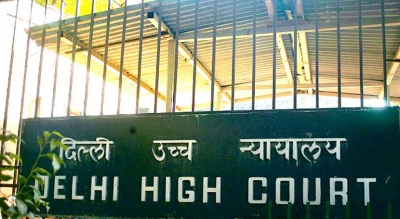New Delhi: The Delhi High Court on Wednesday reserved its judgment on the Enforcement Directorate’s (ED) plea challenging a trial court’s decision to transfer proceedings in the Bhushan Steel money laundering case.
The transfer order came after allegations from an accused, Ajay S. Mittal, claiming the judge made prejudicial comments about granting bail in ED cases.
Justice Swarana Kanta Sharma, presiding over the case, noted the difficulty of the decision, expressing concern about the implications of such transfer orders for the judiciary.
She noted the potential impact on judges when cases are reassigned based on unverified allegations. Mittal’s plea for transfer stemmed from an incident where his wife allegedly overheard the judge remark, “ED matters mein kaun si bail hoti hai?” (“In ED matters, who gets bail?”), during a court session.
This comment was reportedly made after the court staff asked a question, and Mittal argued that this indicated bias against granting bail in ED cases.
Special counsel Zoheb Hossain, representing the ED, contended that the trial court’s decision to transfer the case was based solely on the unverified claim of the accused’s wife.
Hossain argued that neither the defence counsel heard the comment nor was an affidavit submitted to substantiate the claim. He said that this scenario represented forum shopping, where parties manipulate judicial proceedings to achieve favourable outcomes.
Hossain emphasised that such allegations, if accepted without thorough verification, could undermine the criminal justice system. He pointed out that the accused’s wife had been granted bail by the same court handling ED cases, which should negate claims of bias.
Justice Sharma noted the broader implications of the case, sharing her concerns about the effect of social media and public perceptions on judicial independence. She remarked on the personal challenges judges face when their decisions are scrutinised and criticised, often based on unverified information.
Senior Advocate Sandeep Sethi, representing the accused, maintained that the transfer order was merely administrative. However, Hossain countered that the order’s implications extended beyond administrative logistics, impacting judicial fairness and integrity.
The trial court had initially granted the transfer based on the accused’s claim that he could not expect an impartial hearing, taking into account the judge’s alleged comments. The court deemed it necessary to consider the accused’s perception of bias to ensure a fair trial.
As the high court reserved its judgment, Justice Sharma stressed the complexity and sensitivity of the case, indicating that the forthcoming decision would be challenging and significant for her.
–IANS


Comments are closed.